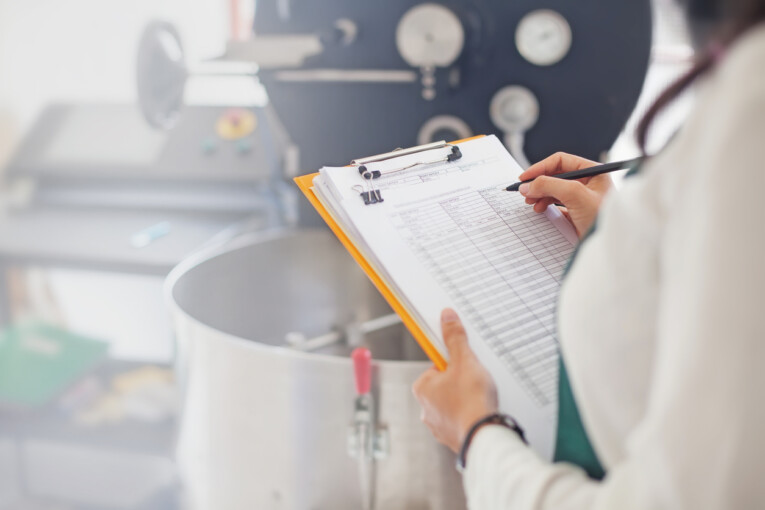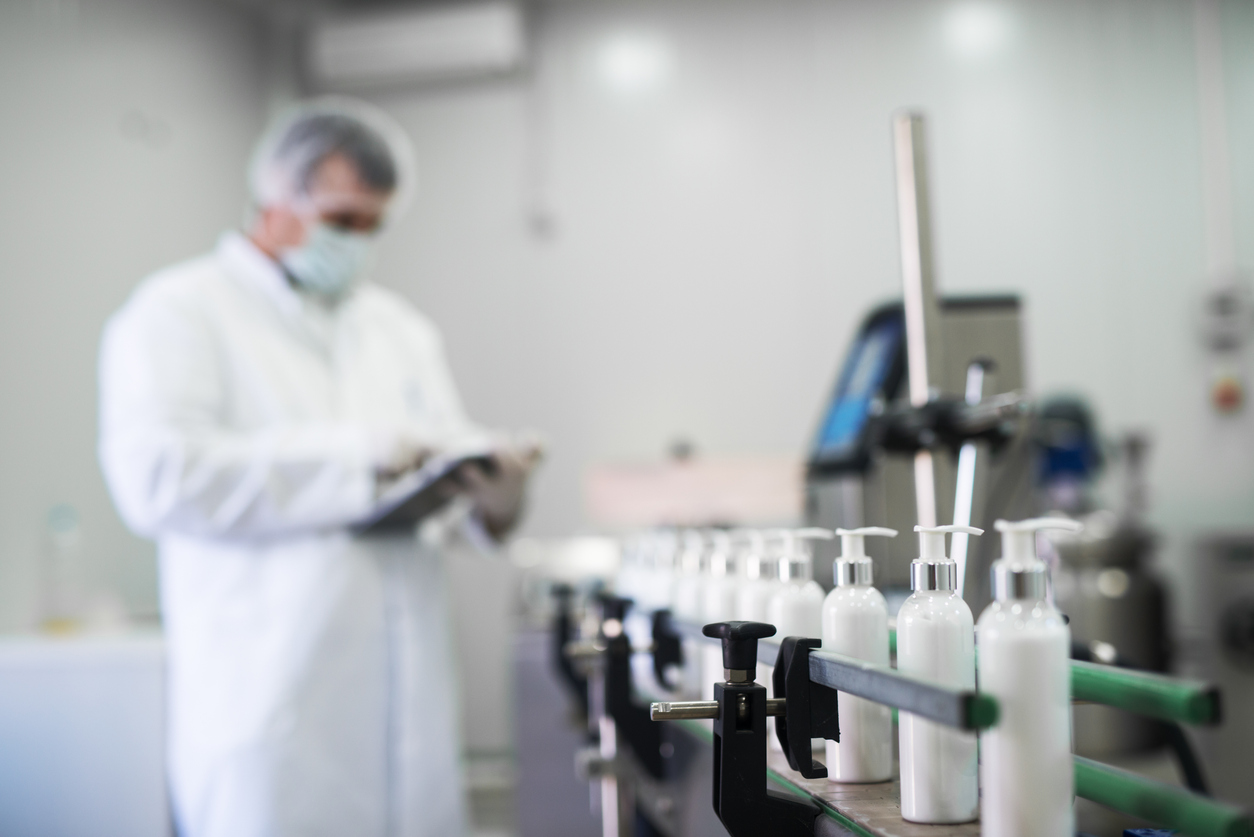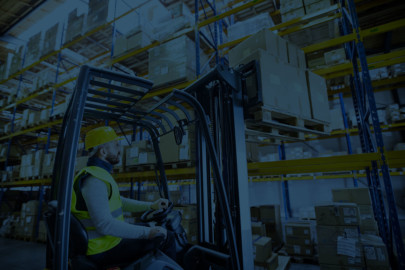What is cGMP Certification and Why it Matters
In the world of supply chain logistics, safety always comes first. But when it comes to the definition of safety, it can mean many things. First, there is the safety of employees and OSHA compliance to consider. However, for food fulfillment and storage, there are specific food safety requirements. To comply with retail, regulatory, and consumer expectations, there should be multiple layers of safety working in concert for the benefit of both employees and the end consumer. From boots-on-the-ground safety precautions to a robust system of internal controls, safety forms the backbone of the manufacturing, warehousing, and shipping industries.
Our focus today is a concept known as “cGMP,” which applies to business entities covered by the FDA in the United States and the WHO in numerous countries worldwide.
What is cGMP?
cGMP stands for “Current Good Manufacturing Practice.” You might also hear it referred to as current good manufacturing practice.
cGMP is a high-level framework intended to ensure safe manufacturing processes for key consumables that are overseen by the FDA. Those industries include:
- Pharmaceuticals
- Food and beverage
- Cosmetics
- Hygiene products
- Vitamins and supplements
- Medical devices
The cGMP standards themselves offer a general set of guiding principles that covered industries must adhere to when setting up their own internal safety protocols. What the standards aren’t is a set of prescriptive rules designed to micromanage your internal processes. As the name implies, they are simply best practices.
The idea behind cGMP is that consumable products from the industries listed above can pose a significant risk to consumers if they are manufactured incorrectly. Consumers, however, cannot easily discern those risks by themselves, and thus, oversight is necessary. In other words, you can’t exactly tell that a pill is bad just by looking at it, smelling it, or tasting it.
Given the macro-level oversight provided by cGMP, what do the standards themselves entail? Some of the tentpole practices include:
- An emphasis on hygienic manufacturing facilities and processes
- Controlled environments for both raw materials and finished products
- Clearly communicated procedures
- Thorough and ongoing employee training programs
- Thorough documentation standards
- Clean and hygienic distribution methods that ensure the integrity of the products
- A mechanism for addressing inadequate products
Although cGMP standards generally refer to the industries listed above, the guiding principles contained therein have application across a wide variety of markets and subsectors.
Let’s take a look at the advantages of becoming a cGMP-certified business.
Why Does cGMP Matter?
The crux of a successful business, no matter what industry you serve, is providing an exceptional customer experience. For the industries listed above, that means ensuring that your products are not only free from all defects but also safe for human consumption. This idea forms the basis of quality assurance.
Manufacturers sit comfortably at one end of the supply chain. The only thing closer to the supply chain’s point of origin is the entities that supply raw materials. The supply chain increases in complexity the further up you go, however. With each subsequent link, more and more internal safety protocols are necessary. The manufacturing facility must be hygienic. Warehouses have to be carefully climate controlled. Distribution methods must take care to segregate products to preserve their integrity. Each link requires additional protocols. Fortunately, cGMP provides such a framework.
For industries that fall under the FDA’s auspices, cGMP compliance AND certification are an absolute must. Compliance is simply a matter of adhering to the FDA’s rules and regulations, however. It’s the certification that matters most.
Becoming cGMP certified means being audited by a third party company that specilizes in food safety inspections. A passing score means getting your certificate demonstrating how your enterprise stacks up against FDA requirements. That’s why a cGMP-compliant warehouse is your ace in the hole. These facilities are designed to promote food safety best practices through a mix of the following processes:
- HAACP analysis
- Hazard and critical control point analysis
- Pest control
- Environmental monitoring
- Equipment calibration
- Employee training
In short, cGMP matters because it communicates to the end user that your business has taken a meticulous approach to safety as well as the integrity of the products that they manufacture. A supply chain that adheres to cGMP is one in which all stakeholders prize the same quality standards. In turn, through warehousing that is cGMP certified, you’ll save your customers time and money through your own investment.
What are the Advantages?
Now that we have a working definition of cGMP, as well as a solid understanding of why it’s so important, let’s turn our attention toward the advantages of becoming cGMP certified.
Improves your company’s reputation
The difference between a successful 3PL provider and a failing business is your company’s ability to deliver a superior customer experience through flawlessly executed logistics. But how do customers who are new to the world of outsourced logistics differentiate between quality providers and the rest of the pack? Via strict adherence to cGMP standards.
Third party logistics companies who use cGMP to establish suitable internal controls and safety procedures will always have a leg up on their competition. By becoming cGMP certified, you communicate the quality of your service to potential clients.
Provides you with a suitable framework for quality
For new manufacturers, setting up internal quality controls can be a daunting task. The process involves creating meticulous protocols with significant overlap and redundancy that are designed to promote hygiene and safety in both the product and the manufacturing environment. But where to begin?
cGMP does the heavy lifting for you. It provides a high-level structure to help manufacturers bolster their product safety profile.
Reduces issues and streamlines your operations
Logistics is all about adaptability. By necessity, manufacturers must be able to pivot quickly and efficiently in order to keep business humming along. cGMP adoption helps you accentuate and codify important operations into formal protocols, transforming your company into a more nimble entity.
Improves oversight and transparency
A large component of cGMP is documentation of your manufacturing processes. Clean, clear, and efficient documentation proves the quality and safety of the products that you manufacture. Proof positive of your manufacturing processes go a long way towards building public trust and establishing your enterprise as a leader in your field.
Provides you with leeway to adapt
We touched on it briefly above, but it bears repeating: cGMP is not a prescriptive set of rules. Instead, it offers a macro-level framework under which to establish your own internal controls. cGMP doesn’t take agency out of your hands. Instead, it gives you the necessary leeway to establish and enforce your own policies.
cGMP: the Gold Standard of Quality
With all the uncertainty that exists in the world, programs like cGMP are a critical component of the pharmaceutical, food and beverage, and cosmetics industries. Manufacturers who adhere to its standards foster public trust, improve the quality of their products, and deliver an overall superior customer experience.
Pledging 100% fidelity to cGMP standards means finding supply chain experts that are like-minded. If you are unsure where to begin with your logistical planning, Symbia Logistics can help. Contact us today to learn more about our cGMP-compliant 3PL services.








